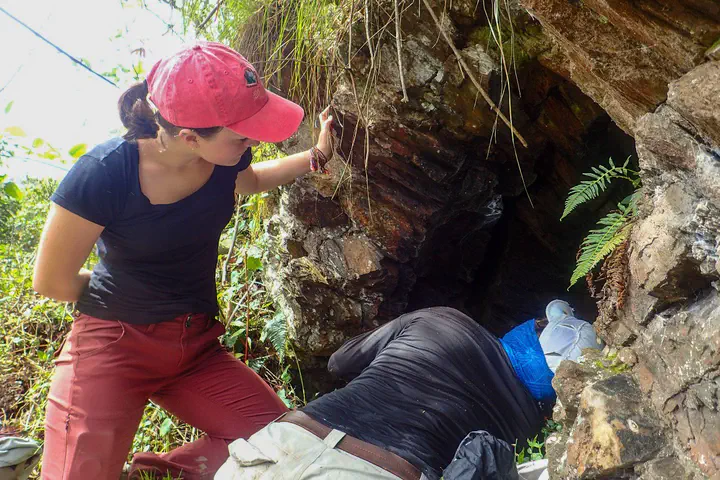Ecotoxicology of bats in urban, pasture and forested sites of the southern Ecuadorian Andes
 Searching for bats with Dr. Rodrigo Cisneros, outside of Loja, Ecuador.
Searching for bats with Dr. Rodrigo Cisneros, outside of Loja, Ecuador.
Abstract
Urbanization and agricultural conversion are the leading global causes of deforestation and biodiversity loss. Latin America is the second most urbanized region in the world with 80% of people living in cities. Agricultural conversion is the main driver of the deforestation in tropical and subtropical countries accounting for 80% of deforestation from 2000-2010. This habitat alteration can lead to bioaccumulation of pollutants and other toxins that are harmful to humans and other species. For example, toxins leeched into the ecosystem from agriculture and urbanization that have been shown to degrade red and white blood cells and create primary physiological responses such as DNA damage. Insectivorous bats can be valuable bioindicators of human health risks because these species are at the same trophic level in the food chains as humans. The goal of this research was to evaluate whether urbanization and conversion of land to pasture was negatively affecting the physiology of bats within the Southern Ecuadorian Andes. Our study area was in the Zamora watershed near the city of Loja, and bats were captured by mist netting at 12 stream-catchments: three forest sites, three forest-pasture sites, three pasture sites, and three urban sites. Blood samples were collected from 20 bats for genotoxicology analysis. Genotoxic effects were measured using a micronucleus test. Preliminarily we found high levels of DNA damage in bats captured in urban, forest-pasture, and pasture sites compared to bats captured in forested areas. We also found the highest levels of DNA damage in insectivorous bats, this could be explained by the bioaccumulation of pollutants in the insects. This research provides valuable baseline data on the toxicological effects of land conversion on the overall health of bat populations, as well as identify regions with high levels of bioaccumulation that may also pose a risk to human health.